Please note, links to all the Freedom Essays are included at the end of this essay. Open any essay to read, print, download, share or listen to (as an audio).
Freedom Essay 13
The WTM Deaf Effect Course
Brief Introduction
In the following very short video Jeremy Griffith introduces the World Transformation Movement Deaf Effect Course. Designed to be watched after The Great Guilt that causes the Deaf Effect, the course will be made up of a series of interactive presentations that have been assembled to help erode the historic fear that makes reading about the human condition so difficult, and enable you to access the fabulously relieving understanding of it! Watch these critical interactive presentations after the introduction below.
Make and see comments here
The Transcript of the above
Introduction to the WTM Deaf Effect Course
By Jeremy Griffith
(Please note, the interactive videos that form the WTM Deaf Effect Course
are found immediately beneath this transcript.)
Welcome to the World Transformation Movement Deaf Effect Course. As I explained in Video/Freedom Essay 11, humans have lived in such extreme fear of the subject of our horrifically corrupted or ‘fallen’ human condition that when the reconciling understanding of it finally arrives—as it now has—that historic fear makes reading about the human condition extremely difficult. As soon as discussion of the human condition begins, the mind of almost every person becomes subconsciously alert to the fact they are being taken into what has been a completely off-limits realm and consequently starts blocking out what is being said. Your mind will find it difficult taking in or ‘hearing’ what is being said; it will suffer from a ‘DEAF EFFECT’ to what is being presented, with the tragic consequence being that you won’t discover the fabulously relieving understanding that liberates and transforms you from the horror of the human condition!
Clearly then, solving this problem of the ‘deaf effect’ that reading about the human condition initially causes, is critically important—and in Video/F. Essay 11 I put forward a number of options for solving it. The most effective method by far was the fourth option, where you are assisted through the ‘deaf effect’ by having someone repeatedly go through the explanation of the human condition, showing how it compassionately and thus safely makes sense of every aspect of human behaviour—be it politics, religion, the relationship between men and women, and so on.
In these talks, while it is the accountability of the explanation that is holding the listener’s interest, most significantly what is also happening is that their fear of the issue of the human condition is being eroded. Just how effective this process of eroding the ‘deaf effect’ is is revealed by this comment that people almost invariably made after watching just a few of the typical presentations about the human condition that I often gave: ‘That was a much better presentation this time than last time Jeremy, the explanations and descriptions were so much easier to follow.’ In truth, since the talks were virtually identical, what had dramatically improved was actually not the quality or content of the presentation but the listener’s ability to take in or ‘hear’ what was being said.
I will be conducting interactive introductory talks about the human condition with volunteers who are new to the information, and over time a collection of the most helpful of these discussions will be included here to form the WTM Deaf Effect Course.
Before beginning to watch the interactive video presentations, which are specifically designed to erode the ‘deaf effect’, it is important that you follow these 6 steps (if you haven’t already):
- First, watch or read or listen to THE Interview;
- Second, watch or read or listen to The Great Guilt that causes the Deaf Effect;
- Third, watch or read or listen to the short Video/F. Essay 3: The Explanation of the Human Condition;
- Fourth, watch/read/listen to Video/F. Essay 4: The ‘instinct vs intellect’ treatise is obvious;
- Fifth, watch/read/listen to Video/F. Essay 11: The difficulty of reading FREEDOM;
- Sixth, watch/read/listen to Video/F. Essay 12: The one hour summarising talk that introduces the WTM Deaf Effect Course.
Once you have watched/read/listened to those 6 introductory presentations to the problem of, and solution to, the ‘deaf effect’, we then recommend you begin watching, and continue to watch, the following interactive presentations until such time that you feel that you are able to effectively read and take in discussion of the human condition—after which you can proceed to read/watch/listen to any of the other presentations on our website.
Please note that over time these interactive presentations will be added to and improved upon, so to see the latest collection of interactive presentations, always check this Video/F. Essay 13 on our website.
We will begin the interactive talks with the following video of a presentation of the biological explanation of the human condition that I gave to a focus group in Sydney in 2014.
- - - - - - - - - - - - - - - - - -
Interactive Presentation 1:
2014 Focus Group Video
The Transcript of Interactive Presentation 1:
2014 Focus Group Video
Part 1 Jeremy Griffith introducing FREEDOM
Jeremy Griffith: So, I’m the author of the book FREEDOM: The End Of The Human Condition. I’m a biologist, but interestingly, the cover of the book has a quote by Professor Harry Prosen, former president of the Canadian Psychiatric Association—he’s one of the world’s leading psychiatrists and he says that this is ‘The book that saves the world’. So, that’s a big claim, and on the back of the book is Professor Prosen’s explanation of that claim which reads, this book ‘takes humanity from a state of bewilderment about the nature of human behavior and existence to a state of profound understanding of our lives’. He also states that this understanding of human behaviour is so wonderfully relieving it will ‘drain away all the pain, suffering, confusion and conflict from the world. This is it—THE BOOK THAT SAVES THE WORLD!’ So that’s a pretty amazing statement from one of the world’s leading psychiatrists. [You can read an excerpt from Professor Prosen’s Introduction to FREEDOM in F. Essay 19.]
The premise of the book, as Professor Prosen said, is to explain human behaviour, to finally make it understandable—make our lives, ourselves, understandable from the deepest level because there’s this massive issue about humans: we’re capable of such contradictory behaviour as saving a kitten that’s stuck up a tree, but then molesting children; we will dive into a raging stream to save a distressed person but then kill people in wars. The paradox of the human situation is undeniable, it’s just the madness out there of it all, and we’re reaching endgame where we need a deeper analysis of the human situation [see F. Essay 55 on the endgame state that the human race has now reached]. That’s what Professor Prosen is saying this book does—it provides that deeper analysis. This is the book that saves the world, as he explains on the book’s back cover, because it goes into this dark corner and makes sense of it.
Part 2 The ‘Deaf Effect’ — Overcoming our fear of the human condition
The purpose of these focus groups is to, first of all, get people’s reaction to the book; give you a free look at it and see how you react to it and then talk about this subject of the human condition and try to familiarise you with the subject matter a bit more. The problem is that people usually encounter what I call the ‘deaf effect’ problem when you start talking about the human condition [again, see The Great Guilt that causes the Deaf Effect and Video/F. Essay 11 for more on the ‘deaf effect’]. It’s a very difficult subject! You can be studying higher physics or mathematics or something and that’ll give you a headache! But there’s really nothing as daunting as the issue of us, ourselves; the human condition. So that’s what I want to talk about.
All human behaviour is actually driven by or influenced by our fear of the human condition. So this book is going to present an explanation of human behaviour that is transforming—it’s so effectively insightful and profound—but that explanation is based on understanding our fear of the human condition, and the problem is, when I start talking about the human condition in order to explain our behaviour, the human mind blocks it out—it’s a Catch-22 situation.
Imagine a tribe of people who all suffer from a snake phobia and I’ve written a book that explains how they can solve their snake phobia, but they don’t know they’ve got a snake phobia, to the point where I say, ‘Well, why don’t you go outside? Why are you always living indoors?’ And they give some ridiculous excuse like ‘Oh, it’s because we like carpets and square walls and doorways; in fact, did you know that going through doorways is what made humans stand upright?’! This tribe have all these theories based on the dishonest world they’re living in because they are unaware of their phobia. So I’m trying to get them to read this book about their snake phobia and I’ve got to firstly introduce them to the fact that they have this phobia, otherwise they won’t be able to hear what I’m saying! So, I put a picture of a snake at the front of the book and I put the book in front of them, thinking this is going to clear their snake phobia. They open the book, see the picture of the snake, slam the book shut and say, ‘Oh, I’m not going to read that!’
So I’m stranded—how do I get people to become aware of the fact that this problem of the ‘deaf effect’ really does exist? The two ways to solve the problem is firstly to have someone talk about the ‘deaf effect’ and familiarise them with the idea, which is what I’m going to do now. The second way to solve it is to re-read the material and be patient with it because the ‘deaf effect’ will start to clear, the fog will start to lift. You’ll be astonished at just how much ‘deafness’ there is when you first start to read about this historically forbidden realm of the human condition. So to overcome the ‘deaf effect’, I have to connect people with the reaction that’s going on in their minds so that they can start to become aware of it, and not only that, but start to erode that ‘deaf effect’. Listening to me talking about it will supposedly reassure you about the subject area and your subconscious mind will relax and be able to take in the discussion when it couldn’t initially.
It changes your whole world when someone can finally explain the riddle of human nature, why we are the way we are. And what I’m saying is that hearing the explanation of why we are the way we are is greatly influenced by our fear of the human condition, so I’ve got to connect the readers to the issue of the human condition. So that’s my dilemma; how to do that.
Part 3 Human denial: Plato’s cave allegory
So, I want to make you aware of just how real our denial, our block-out is. There’s a much better analogy than the snake phobia and that comes from Plato [see Video/F. Essay 11 for more on Plato’s analogy]. Now, Plato is regarded as the greatest philosopher of all time and he lived some three hundred and sixty years before Christ in the Golden Age of Greece. That’s a long time ago so what he has to say must be pretty amazing. Alfred North Whitehead, himself one of the greatest philosophers of the twentieth century described the whole of philosophy (philosophy being the study of ‘the truths underlying all reality’ [Macquarie Dictionary, 3rd edn, 1998]) as being merely ‘a series of footnotes to Plato’ (Process and Reality [Gifford Lectures Delivered in the University of Edinburgh During the Session 1927-28], 1979, p.39 of 413). So that’s an amazing statement; he’s saying Plato was the most profound and effective thinker about ‘the truths underlying all reality’, so I think the great question in our minds should be, ‘What the hell did Plato write or say that was so damn profound that it makes everything else that has been written or said since, nothing but footnotes to everything he wrote or said?’ It’s a very interesting question.
Well, the most revered work by Plato is the dialogue of The Republic and at the centre of The Republic is this allegory of humans being incarcerated in a cave. And I’m suggesting, and I’ll read you some quotes as confirmation, that Plato is saying, ‘I’m watching the whole world and I want to tell you the essential thing that’s happening: everyone is living deep underground in the cave of denial, unable to face the glaring truth of the sun outside the cave.’ So he, like me, is saying that if you want to understand human behaviour, the biggest issue is that we’re living deep underground in denial. That’s the most profound insight about us.
Then he went on immediately to speak about the problem of the ‘deaf effect’, and he described what happens when someone ‘escapes from the cave into the light of day’ and ‘sees for the first time the real world and returns to the cave’ to help the cave prisoners ‘Escape into the sun-filled setting outside the cave [which] symbolizes the transition to the real world…which is the proper object of knowledge’ (Encarta Encyclopedia, written by Prof. Robert M. Baird, ‘Plato’; see www.wtmsources.com/101), to find understanding of why we’re living in a cave, understanding of our fear of the human condition.
So someone gets outside of the cave and writes a book about what’s happening inside the cave, and then goes in to say, ‘This is the explanation that will liberate you from the cave’, which is exactly what this book FREEDOM does. And what happens? As Plato wrote: ‘it would hurt his [the cave’s prisoner’s] eyes and he would turn back and take refuge in the things which he could see [take refuge in all the dishonest, illusionary explanations for human behaviour that we have become accustomed to from human-condition-avoiding, mechanistic science], which he would think really far clearer than the things being shown him. And if he were forcibly dragged up the steep and rocky ascent [out of the cave of denial] and not let go till he had been dragged out into the sunlight [shown the truthful, real description of our human condition], the process would be a painful one, to which he would much object, and when he emerged into the light his eyes would be so overwhelmed by the brightness of it that he wouldn’t be able to see a single one of the things he was now told were real.’ Significantly, Plato then added, ‘Certainly not at first. Because he would need to grow accustomed to the light before he could see things in the world outside the cave.’ (See par. 83 of FREEDOM, or you can view all these quotes highlighted where they actually appear in The Republic at www.wtmsources.com/227.)
So we live with this poor, dishonest, denial-based, living-and-hiding-in-a-cave version of the world, not the true, greater world outside the cave that is real and profound. The world starts to become transparent when someone gives you the keys to unlock your brain to make sense of human behaviour. So this book has a very exciting benefit for the human race BUT, how do you access it? The key is to talk to you about it and run you around this forbidden room until you get a bit more familiar with it and after a while you can start to acclimatise and ‘grow accustomed to the light’ as Plato said. So that’s the purpose of this talk, to talk about this forbidden subject and relieve us of our deep inability to access it. I’ve got to help you overcome that denial, make a start at eroding it, familiarise you with this forbidden realm and then you can start reading the book and hopefully it will just be very exciting!
One of the members of the focus group that was held earlier this morning said, ‘Oh, I gave the material to my dad who’s a lawyer and he read one page and said, “I’m not going to read that”, and I gave it to my wife and she said, “I’m not reading that.”’ Another of the focus group participants didn’t even turn up this morning saying the book was terrible and poorly constructed. If you don’t know why you can’t access it, you can’t help but blame the presentation. So people typically say it’s too complex, too dense, too long, too poorly written. People actually send me emails, in real anger, saying, ‘Can you send me an executive summary so I can understand what the hell you’re trying to say here?’; they just can’t ‘get it’ at all.
People will also come to any subject with their pre-conceived philosophy—you don’t walk around the world legless, you try to make sense of it the best you can, right? And so there’s that problem as well, you’ve got to reconcile it with your existing explanations and understandings. And then there’s a lot of adjustments, a hell of a lot, but the deepest and hardest adjustment, which we’re not even aware of, is this equivalent of a snake phobia or Plato’s ‘cave’ of denial where we can’t face the truth. But I want to talk about the truth. I’m not talking about how to play soccer or something, I’m talking about this darkest of all subjects and asking you to access the deeper corner of ourselves and that’s really spooky. When we start to go down into that corner, as we will in a minute, it’s pretty hard. And that’s where this book goes, right into what Joseph Conrad called the Heart of Darkness in his classic 1902 novel. It was made into the film Apocalypse Now starring Marlon Brando as one of the main characters, Kurtz, who travels up the Congo river into the Heart of Darkness and goes mad. It’s a metaphor for the dark corner within ourselves and Kurtz screams out [the famous line] ‘The horror! The horror!’ in acknowledgement of the horror of our massively upset condition. Without understanding of the human condition going into this dark corner of ourselves can lead to madness. So we all prefer to stay well away from the metaphorical Congo river, preferring to bounce around on the beach with our sun umbrellas not going anywhere near the damn thing; no one wants to venture up the river into the Heart of Darkness.
There are a lot of metaphors throughout my book. One person in a previous focus group said he loved the cartoon by Michael Leunig of cars streaming into the city, belting along a big long highway into a huge metropolis of madness and off to the left it says ‘Truth and Beauty Left Lane’, with this little lonely individual on his bike peddling off in that direction. Just like out the window here [in Sydney], a huge metropolis in a state of madness and chaos, vindictiveness and nastiness, and no one’s trying to penetrate it, get behind it, and yet there’s this one lonely individual peddling off into the left hand lane, going off into a whole different realm trying to penetrate the heart of darkness, this terrifying issue of us, and come back with some real answers, and that’s what this book has done.
Part 4 Resignation — The angst of adolescence
Explaining ‘Resignation’ is the most powerful way I know to reconnect you to the extreme horror and fear of the human condition [F. Essay 30 provides further explanation of the process of ‘Resignation’, and for the main presentation, see chapters 2.2 – 2.3 of FREEDOM]. Because if you look at what happens to children, we’re not born living in Plato’s cave. When we’re born we’re outside it, innocent and free. And then we enter this world that isn’t ideal, as we instinctively expect it should be—there’s something massively wrong about it. So, gradually, by the time children reach the ‘naughty nines’ all of human life, including their own behaviour, is becoming increasingly bewildering and distressing and their confusion and frustration is such that they even angrily begin taunting and bullying those around them—flailing out at the imperfections of life. But by around 12 years of age, something very significant happens: they sober up and they realise that ‘flailing out’ in frustration is not going to get me anywhere. They say to themselves, ‘I’ve got to sit down and try and figure this out; I’ve got to try to understand why the world isn’t perfect because if I can’t understand it I’m just going to get more and more distressed.’ So there’s a huge change psychologically between childhood and adolescence—we actually changed the name, have you ever wondered why that demarcation occurred? You change from being a protesting, demonstrative, naughty, extrovert child to becoming a sobered, deeply introspective adolescent. There’s a big change and even our schooling system recognises it: you go from junior school to high school, or senior school, in recognition of this huge change.
At about 12, the child’s brain starts to think more and more, trying to understand the imperfection of the world, and this thinking goes deeper and deeper. And you quickly learn that adults, for some reason, don’t even want to talk about it and they’re all bouncing around laughing and putting on a brave face, smiling and buying new blue shoes and carrying on, right. So you quickly learn that the world is all fake and phony and you don’t want to know about it which means you’re on your own thinking about all this horror. You go to sleep at night thinking about it. And then when you get to around 14 the questions start to get really deep and really serious and you start to confront not just the human condition without but the human condition within; you start trying to make sense of the dark side of yourself: the anger, the egocentricities, the indifference to others, the frustrations, and so on. When you try to face that question of whether you’re a worthwhile and meaningful person or not, because, if you’re really honest and you’re full of all these angers, egocentricities and indifferences, then you could conclude that by inference you mustn’t be a worthwhile person and that’s a terrifying conclusion to reach.
So, at a certain point in this journey, trying to face down the human condition becomes unbearable. And that’s the moment of Resignation, when you decide never to visit that corner again because it’s just too terrifying. The Beatles’ song Let It Be—consistently voted one of the most popular songs of the twentieth century—is actually an anthem to this need that adolescents have historically had, when confronted with the unbearable ‘hour of darkness’ that came from grappling with the issue of all ‘the broken hearted people living in the world’, to ‘let it be’ ‘until tomorrow’ when ‘there will be an answer’ (Lennon/McCartney, 1970). It’s incredibly honest. I think it was written by Paul McCartney although normally it was John Lennon who wrote the really profound stuff.
Participant (Anna): It was Paul, yeah.
Jeremy: Anyway, ‘let it be’; don’t go there, give up, don’t try to face that down; one day ‘there will be an answer’. If you unpacked those words McCartney is saying that one day there will be an understanding of the human condition, he is saying that one day humans won’t have to resign.
Participant (Tabatha): So is Resignation like acceptance?
Jeremy: It’s acceptance of the world the way it is and that you’re never going to make sense of it and if you try to you will just give yourself an almighty headache.
Tabatha: Well, that’s an extreme reaction.
Jeremy: Yes, but that’s why I gave those descriptions earlier. One of you mentioned that the explanation of Resignation was getting a bit long-winded, giving too many examples, but it’s so important because if you allow yourself to be immersed in it, nearly everyone remembers being there. We’ve got all these dishonest excuses for it but parents can’t deal with children through those years when they hit 13, 14, 15, because they’re unreachable. They play their head-banging music in their bedrooms and if you try to talk to them they just bite your head off so parents learn to give up.
Tabatha: Well, hormones don’t help with having the feelings and what to do with the feelings.
Jeremy: Well that’s the traditional excuse, to blame it on the hormonal change that comes with puberty, called ‘puberty blues’—it’s self-revealing—‘blues’ means depression, and a lot of people get glandular fever and they blame that on hormones calling it a puberty-related ‘kissing disease’. Now if you just think about that, it’s a ‘cave’ excuse. We’ve got all these bullshit explanations based on living in the cave of denial. Remember what I said in the snake analogy, ‘Oh, people stood upright because of doorways’, it’s just rubbish! They’re not prepared to go outside—think truthfully about the world—they’re living with their terror of snakes but denying that they’re scared. So living as cave-dwellers, we’ve got all these theories, we’ve got the art of bullshit, or denial, down pat. We’ve got an excuse for everything and we quickly blame it on, just as your brain went to, that it’s a hormonal upheaval.
Tabatha: Well, I’m not thinking of it as an excuse. I’m just thinking of it as an added obstacle.
Jeremy: Yeah, okay.
Tabatha: And obviously, like your book, you’re saying at that age, I guess even I know, that’s when I started to think about my place in the world; it’s not just ‘the world revolves around me’ and how I’m going to affect the world. So hormones do exist, puberty does exist.
Jeremy: Yes.
Tabatha: So having already those deeper thoughts because of your age...
Jeremy: If you think about it, really, humans have been going through puberty ever since we were animals.
Tabatha: Yeah, it doesn’t stop, we’re still...
Jeremy: But just wait a second. Puberty is an ancient physical adjustment that has been going on since animals became sexual. So we’ve had millions and millions of years to adjust to puberty. Eons, billions of years, since we were microbes; so we’re well-adjusted to puberty. When we get glandular fever that means our whole immune system is so run down that it can’t fight it and yet during puberty the body is physically at its peak in terms of growth and vitality—so for an adolescent to succumb to the illness they must be under extraordinary psychological pressure, experiencing stresses much greater than those that could possibly be associated with the physical adjustments to puberty. It’s the healthiest time of your life; it’s when you’re the most vital; you’re in the maximum growing period and, clearly this ‘puberty blues’, this depression is not to do with hormonal upheaval, as you mentioned Tabatha, but a far more serious psychological problem—it’s to do with Resignation, which is a horrendous corner to go through.
American Pulitzer Prize-winning child psychiatrist, Robert Coles wrote an agonising little paragraph about a kid going through Resignation (par. 109 of FREEDOM) and he probably won the Pulitzer prize because of that one paragraph, it was just so incredibly honest and must have saved a lot of kid’s lives. [Coles wrote: ‘I tell of the loneliness many young people feel…It’s a loneliness that has to do with a self-imposed judgment of sorts [they’re starting to confront the human condition within themselves]…I remember…a young man of fifteen who engaged in light banter, only to shut down, shake his head, refuse to talk at all when his own life and troubles became the subject at hand. He had stopped going to school…he sat in his room for hours listening to rock music, the door closed…I asked him about his head-shaking behavior: I wondered whom he was thereby addressing. He replied: “No one.” I hesitated, gulped a bit as I took a chance: “Not yourself?” He looked right at me now in a sustained stare, for the first time. “Why do you say that?” [he asked]…I decided not to answer the question in the manner that I was trained [basically, ‘trained’ in avoiding what the human condition really is]…Instead, with some unease…I heard myself saying this: “I’ve been there; I remember being there—remember when I felt I couldn’t say a word to anyone”…The young man kept staring at me, didn’t speak…When he took out his handkerchief and wiped his eyes, I realized they had begun to fill’ (The Moral Intelligence of Children, 1996, pp.143-144 of 218).] And J.D. Salinger’s 1951 book Catcher in the Rye. Did one of you mention Catcher in the Rye, or was it the previous meeting?
Participant (Anna): I said that I wanted to read it and I was embarrassed I hadn’t.
Jeremy: That’s right. Yeah, it’s an absolute classic.
Participant (Tabatha): I didn’t get it when I read it. I was actually annoyed about why he was such a whinger but reading what you’ve written about it, I kind of want to go back because obviously there was a fault. I came in in one mind and that stayed with me the whole way through. I didn’t see the metaphors.
Jeremy: You’ve got to understand, we can’t admit we’re in denial and still maintain our denial so how are you going to write about Resignation? My book gets away with digging up all these truths because the explanation in chapter 3, The Human-Race-Transforming, Real Explanation of The Human Condition, defends humans; it explains why it is that we’re actually the heroes of the story of life on Earth; it explains that we’re not villains; we’re not worthless beings. So, you’ve got to give this book to adolescents before they resign because they’re begging for these answers. Someone once said to me, ‘If you had a book for children when they’re going through Resignation it would save their life, they’re your natural audience, because once you get talking to adults who are resigned, they’re deaf to this.’
Participant (Anna): Yeah, that’s what I was thinking. It’s almost too late to read this now.
Jeremy: That’s right, it’s very hard. But the world is owned by adults so I’ve got to start with adults.
Anna: It goes back to my previous question and it’s interesting to hear your thoughts on this; we are already in this madness, so to speak, and I understand your issue—how do you get people out of that, to recognise it and to become comfortable with it and absorb what’s in the text? I mean, it seems simple to go to adolescents, but I think part of the reason I connected with it at times was because of some of those references which I came across in later life, which there’s no way I would’ve come across in adolescence, but it is quite a conundrum.
Jeremy: You immersed yourself in this while we’re having this meeting.
Anna: Yes! Yeah.
Jeremy: In Catcher in the Rye, Salinger writes about Resignation without really saying what’s going on because you can’t admit that it’s happening. Once you admit that Resignation happened, then you’re admitting to being a liar. That’s the great elephant in existence in our lives, this issue of the human condition which we decide never to look at again, this fearful issue of why we aren’t ideally behaved and so on; the imperfection; are we worthless or not? You take up denial of this greatest of all issues, so you’re living in an immensely fraudulent, artificial and superficial state and all your thinking is fraudulent from there on.
The example I use in FREEDOM is: ‘There’s a tree with lovely autumn leaves; isn’t it amazing how beautiful nature can be, I wonder why some things are beautiful while others are not—I wonder why I’m not beautiful inside, in fact, so full of all manner of angst, selfish self-obsession, indifference and anger…aaahhhhh!!!!’ You’re not going to go there. Any thinking will quickly take you into the issue of the human condition, so you’re better off not thinking.
There are a lot of quotes in FREEDOM from Nobel Laureates and they all say, ‘We humans don’t want to think.’ As the Australian comedian, Rod Quantock said: ‘Thinking can get you into terrible downwards spirals of doubt’ (‘Sayings of the Week’, The Sydney Morning Herald, 5 Jul. 1986). So we ended up not wanting to think, we just want to stay on the surface, because we know if we start thinking, we’ll start to encounter this problem of the human condition and we don’t want to go there. We’ve been there once and we got absolutely cooked and we’re not going there again, so we’re just on an absolute ‘bender’ of escapism. We’re going to live on the meniscuses of life. If there’s a glass of water, there’s a meniscus on the top and that’s about where we live [gesturing to the top of a glass of water] because all of this is too confronting [gesturing to the rest of the water in the glass]. That’s why Plato, the greatest philosopher of all time, focused on this huge issue underneath the surface that we’re not looking at because that’s what we’re doing—living deep underground in this cave of denial. That’s how dishonest, artificial and superficial we are. You give up on trying to think truthfully. Adults who have resigned don’t want to go around saying, ‘This is what Resignation is and I’m a total fraud and all my thinking is dishonest so don’t trust me at all!’ That would totally undermine your life. So again, that’s the truth we couldn’t admit until we could defend the human condition. First, explain the human condition and then, and only then, does it become safe to admit to and unlock this fearful, previously off-limits subject of Resignation.
Part 5 Is this hypothesis testable?
Participant (Tabatha): I think that’s the problem though, that people are comfortable in staying ignorant and being arrogant.
Jeremy: Yeah, but if you unpack that, if you bore down into what you just said: ‘people are comfortable in staying ignorant.’ Let’s just analyse that. They’re comfortable because they’re uncomfortable when they don’t stay ignorant, if they go down into the deeper dark truth, it’s terrifying.
Tabatha: Actually learn something, open themselves up.
Jeremy: There’s a terror under there, okay.
So, Craig, are you getting pretty awkward about this?
Participant (Craig): No, no, I’m just listening. I mean, you say you’re in a Catch-22 but you place everyone else in the same Catch-22. If they deny what you say, then you can just put them in a class of denial.
Jeremy: Yeah.
Craig: ‘You can’t deny what I say because if you do, you’re a part of the human condition’, you know, ‘I reject your opinion because you’re obviously not a thinker.’
Jeremy: Yeah, that’s right.
Craig: So that’s the position you’ve put us in, we can’t disagree with you because if we do, ‘Oh, you’re in that group of people who can’t think.’
Jeremy: It’s a circular argument called the ‘non-falsifiable hypothesis’. But that’s true. If you say everyone’s in denial and then they complain and take issue with something you’ve said, you say, ‘Well, that’s just classic denial’, so they’re in a situation where they can’t get out of that. But let me explain that there are situations that have that characteristic about them. I mean, if you’re going to admit to something and talk about something that people aren’t looking at, then they’re caught in this bind where if they complain or take issue, then they’re accused of denying it.
But I didn’t create the issue of the human condition. You can go and verify it, which is the way to see if what I’m saying is true or not, being very aware, as everyone should be, of what you’re pointing out [see WTM FAQ 1.10]. It’s why I accompany every step along the way with great quotes from great literature or popular culture references, so that you’ve got some verification that this is not just me saying this, this is some evidence for it. Because you should be totally sceptical. If someone says ‘This is the book that saves the world’, you should almost chuck it over your shoulder. You would think, ‘This has got to be crap, that’s outrageous hubris if ever I’ve read it. But then again, this guy, Harry Prosen, seems to be a very impressive psychiatrist, maybe…’ So the thing to do is to get into it, to read it. And this is rational—there’s no mysticism or abstract concepts—it’s all rational first principle biology, so you can go in and test it, and you should question it at every step and take issue all along the way. We are conscious, thinking, self-adjusting beings, we are in charge of ourselves, not anybody else. This is the end of faith and belief and the beginning of knowing. We don’t want brain anaesthetic, we want brain food, we want answers so if someone brings some answers, we’re rational, we can go and look at them, so you’re on safe ground. You can throw it over your shoulder and you should rigorously check every idea along the way and you should take ideas on notice and think, ‘Well, okay, that may have some possibilities but I’ll keep thinking about it and see if it doesn’t stack up.’
Craig, in your feedback to the book you made some pretty good points such as questioning ‘that consciousness necessarily means we’re all evil’, and ‘that people as a collective are evil’, and that’s a very rigorous and responsible position to take to question that. So I’m totally with you in your need to be sceptical, that’s fine. All I’m asking of you is to take this stuff on notice and read through it and see if it doesn’t make sense.
Just to look at what you’ve said, that ‘people are fundamentally evil’. I’m using Plato’s example so I’m not saying this. He’s regarded as our greatest philosopher and he said that we’re all living in denial. You can take that on board or reject it but he’s regarded as the greatest thinker about ‘the truths underlying all reality’ and that’s the central concept in all his thinking. So he’s saying we are living in denial of this fearful issue of the human condition—he used the phrase ‘human condition’, the first person to ever use this phrase as far as my research has found. And the human condition is the state of living in this compromised condition, this dilemma of ‘good’ and ‘evil’; why humans are capable of saving a kitten stranded up a tree and then also of molesting children. We have this capacity for enormous sensitivity and love but on the other hand there are darker, volcanic forces within the human species. We’re unable to make sense of that, therefore we live in denial of it. We don’t live in this ‘cave’ for nothing. Plato said, we live in this ‘cave’ because we’re in fear of ‘the imperfections of human life’; we’re living in denial of the human condition.
I agree about not calling it ‘evil’—every time I use the word ‘evil’, even the word ‘good’, I put it in inverted commas because the word ‘evil’ is pre-human-condition-understood, old-world-criticising and condemning. Chapter 3 of FREEDOM is all about getting rid of the word ‘evil’ forever. I use the word ‘upset’—that we became psychologically upset as a result of the battle that emerged when we became fully conscious humans. So this is a dignifying, redeeming, ameliorating, loving, compassionate understanding of the dark side of ourselves. As the Rolling Stones song said, we need ‘Sympathy for the devil’ (1968). One day, ‘The Marriage of Heaven and Hell’, as William Blake titled his famous book (c.1790), had to occur. That has been the objective; to reconcile the two factions that exist in human life of the dark and light side; young and old; men and women; innocence and upset; country and city; mechanism and holism; science and religion. They’re all manifestations of these two poles of the human situation. And one day we had to find reconciling understanding, bring love to the dark side of ourselves.
Sir Laurens van der Post is the most quoted author in FREEDOM and my favourite writer and he said, ‘True love is love of the difficult and [historically] unlovable’ (Journey Into Russia, 1964, p.145 of 319). [See F. Essay 51 to read about Sir Laurens’s remarkable contribution to the human journey]. That’s what the resigning child is wanting to understand. This explanation is so relieving when you finally ‘get it’, this information really does explain the human condition because you can experience it. As Einstein said, ‘Truth is what stands the test of experience’ (Out of My Later Years, 1950, p.115 of 286), which is the scientific method—it has to be subjected to scrutiny, to be proven and to survive.
Given this experiment is about us, our human behaviour, we’re the rat in the cage, we’re actually the experiment. So if someone gives us an explanation of us, we’re in a good position to see if it’s true or not because it should start to make the world transparent; it should help us make sense of ourselves and everything around us.
So I agree, we shouldn’t use the term ‘evil’. I’m getting rid of ‘evil’, the idea that humans are fundamentally bad or worthless, forever. As I said, the end result of chapter 3 of FREEDOM is that humans are the heroes of the story of life on Earth: it’s the most wonderful conclusion you could ever imagine. Humans have lived with the burden of guilt, feeling unworthy, sufferers of anger, frustration and imperfection and never able to understand why. Because adults are all resigned they don’t want to go anywhere near that dark corner. Two days after people resign you can hardly get them to remember it because it’s such a terrifying depression that they don’t ever want to revisit that corner again.
This is ‘the black box inside of humans’ we’re talking about here, ‘the personal unspeakable’ as it’s been described to me (personal conversations, WTM records, Feb. 1995), the forbidden part of ourselves. Children are on their own wrestling with this. As Anna said earlier, it’s almost too late to read this book once you’ve resigned. But the problem with pre-resigned adolescents is that they are so instinctively suspicious of adults. I’ve talked to adolescents and tried to help them but I could tell by their expressions that they’re not trusting that any adult will talk honestly at all, so they’re not really believing that you’re going to talk truthfully. So you’ve got to talk to them for a long time before it starts to dawn on them that you are actually dealing with what they’re wrestling with and gradually you see their eyes open and gradually you see them, instead of this [motions ‘go away’ and head down gesture]. As Robert Coles said, the kid wouldn’t even look at him until he asked him what he was wrestling with: ‘“Not yourself?” He looked right at me now in a sustained stare, for the first time. “Why do you say that?” [he asked]…I decided not to answer the question in the manner that I was trained [basically, ‘trained’ in avoiding what the human condition really is]…Instead, with some unease…I heard myself saying this: “I’ve been there; I remember being there—remember when I felt I couldn’t say a word to anyone”…The young man kept staring at me, didn’t speak…When he took out his handkerchief and wiped his eyes, I realized they had begun to fill’ (The Moral Intelligence of Children, 1996, pp.143-144 of 218). Why had he started crying? Because Coles had reached him with some honesty about the utter hypocrisy of human life that the kid could see and that no one was admitting to.
Catherine Yeulet/iStockphoto; yamasan/AdobeStock; Al Troin/AdobeStock
It was the same for Holden Caulfield in Catcher in the Rye. Holden is 16 years old and still unresigned and can see that he’s ‘surrounded by phonies’ (p.12 of 192) and ‘morons’ who ‘never want to discuss anything’ (p.39). He couldn’t study, he is thrown out of school after school and just wants to escape to a little hut by a stream and chop wood and doesn’t want to have anything to do with the madness, because the world is crazy and no one’s admitting it. And then he meets this guy, like Robert Coles, an adult who rats on the adult world and that rare honesty, in Holden’s words, ‘really saved my life’ (p.172). This is what the adult said: ‘This fall I think you’re riding for—it’s a special kind of fall, a horrible kind…[where you] just keep falling and falling [utter depression]’ (p.169). The adult then spoke of men who ‘at some time or other in their lives, were looking for something their own environment couldn’t supply them with…So they gave up looking [they resigned]…[adding] you’ll find that you’re not the first person who was ever confused and frightened and even sickened by human behavior’ (pp.169-170). That’s the key line in the whole book because to be ‘confused and frightened’ to the point of being ‘sickened by human behavior’—including your own behaviour, indeed, to be ‘suicid[ally]’ ‘depressed’ by it—is the effect the human condition has if you haven’t resigned yourself to living a relieving but utterly dishonest and superficial life in denial of it.
Just as Robert Coles spoke a little bit of truth, Holden Caulfield is bouncing around unable to cope with a world gone crazy and no one’s admitting it; everyone is pretending that everything is fine when it’s not, and then in a moment of absolute desperation, he talks to an adult who says ‘you’ll find that you’re not the first person who was ever confused and frightened and even sickened by human behavior’ and finally Holden has some honesty.
He’s trying to make sense of human life so he’s reading everything he can get his hands on, all the philosophical books but everything is written from inside the cave so it’s artificial, superficial, living on the meniscus. It’s dishonest and because he’s unresigned he can see through that dishonesty and he can very quickly suss it out, what’s fake and what isn’t. You’ve got an amazing shit-detector if you haven’t resigned. That’s how I found all the answers in FREEDOM, by just thinking truthfully. I’m not clever, I’m just not in denial of all these truths and I can think about things that—and I didn’t know why when I was young—no one else wants to think about [read Professor Prosen’s biography of Jeremy in F. Essay 49].
So, Holden Caulfield is searching for the truth and he’s reading everything he can get his hands on. And kids do that when they’re going through Resignation, they search for the truth and they’ve got an immaculate shit-detector so they can tell if something is crap, if it’s bullshit, if it’s not honest, if it’s cave-speak. And everything is. We have huge libraries full of books talking about the human condition. Great literature occasionally might allude to some truth and that’s why it’s great, it’s got a little bit of truth in it but not too much because you can take people a little bit closer to the fire of truth but not right into the fire.
So Robert Coles won the Pulitzer Prize, I’m suggesting, because of that one paragraph, that little bit of truth he let through. It was so special, so extraordinary. That’s been the name of the game to let little bits of truth come out, not huge amounts.
Part 6 The truth behind our lies
Participant (Craig): Can you give us an example of a specific untruth?
Jeremy: Well, FREEDOM is full of them, but the example I’ve just referred to is that the stress that adolescents go through is due to hormonal upheaval. I’m saying that’s a totally dishonest, cave-dwelling excuse. What I’m going to do in this book is go through and explain all the great mysteries in science. First of all, I have to connect you with the human condition, this theory that we are living in denial, and I agree you should take that on board with a pinch of salt and say, ‘I get what your argument is, let’s see if it works by putting it to the test.’ The ultimate test being that it should start to make our own life transparent, because as Einstein said, ‘Truth is what stands the test of experience’, you start seeing through everything, that’s how powerfully honest it is. Chapter 2 says that the premise of the book is to explain human behaviour from a profound, honest base and to do that I need to make us aware of the human condition. So I make you aware, supposedly, by presenting this explanation so you’ve got an appreciation that we may be living in denial of the human condition. Now, let’s take that as an assumption and then let’s get serious and look at all the biological arguments that we’ve been living with [you can read more about mechanistic science’s false biological arguments in Video/F. Essay 14 & F. Essay 40].
I begin by explaining that science is mechanistic and reductionist. It’s living in denial of this subject matter, not looking at the overview, it’s reducing its focus to looking into the details and mechanisms and avoiding this overarching bigger issue of the human condition because it can’t confront it. Scientists are resigned adults, supposedly, living in denial of the human condition, and so they’re looking down at the details not at the overview which is unbearable until we find the explanation of it. As Paul McCartney’s song Let it Be says, there will be some answers one day but until then, ‘let it be’, don’t go there, because you’ll give yourself a hiding.
So the book goes through all the biological ideas and it starts off with Social Darwinism because when Darwin originally wrote the first two or three editions of his book, Origin of Species, he didn’t use the term ‘survival of the fittest’. He used the term ‘natural selection’ and left it undecided as to whether those individuals who reproduced more could be viewed as winners, as being superior or ‘fitter’; he didn’t want to make that judgment (in fact, you’ll see in chapter 4 that it explains that to be altruistic and give your life to maintain the greater whole can actually be more meaningful than being selfish). So Darwin was actually right not to say that to survive makes you fitter but his mates, Herbert Spencer and Alfred Russel Wallace, persuaded him to substitute the term ‘natural selection’ with the term ‘survival of the fittest’ (Letter from Wallace to Darwin, 2 Jul. 1866; The Correspondence of Charles Darwin, Vol.14, p.227 of 706). That was a coup for the cave-dwellers because suddenly you can use Darwin’s idea of natural selection to say that those that survived are the winners; they are fitter than everybody else and that’s why they survive. So now businessmen say, ‘Oh, we’re the best shoe makers in the industry because we’re the most competitive. It’s “survival of the fittest”, Darwin said it.’ It’s become a lie but Darwin was actually honest. It’s called Social Darwinism because it’s used throughout industry and elsewhere to justify selfishness, but, in fact, Darwin wasn’t going to go down that road until his arm was twisted.
So in chapter 2 I begin to go through all the different biological theories, dismantle them and reveal what they’re really all about because I know what the game plan is behind all their behaviour, all their actions, all their theories. The game plan is to avoid the human condition. They’re living in the cave of denial and not being honest and they’re continually trying to find more and more clever ways to avoid the human condition. So I go through Evolutionary Psychology, the theory of Eusociality and all the other theories that developed, because there are some big problems for Social Darwinism. For example, bees are unconditionally selfless, they give their life for the queen, so trying to be the winner is not a universal phenomenon in nature. And we’ve got our own moral instincts to account for—we have a conscience which wants us to behave in a cooperative, loving way. So there’s some big holes in Social Darwinism.
Seeking to address these cracks in the argument, biologists developed the theory of Sociobiology, later known as Evolutionary Psychology which says, truthfully enough, that worker ants and bees are not actually being unconditionally selfless, truly altruistic when serving their colony because, when doing so, they are fostering the queen who reproduces their genes, which means their apparent selfless behaviour is, in fact, just a subtle form of selfishness: they are helping the queen to selfishly reproduce their genes. So it’s actually ultimately still selfish. But the trick of Evolutionary Psychology was to take the next step and apply this theory to our human moral instincts and say they are also driven by reciprocity, that we’re trying to reproduce our genes by fostering others who are related to us. That was a fraudulent, human-condition-avoiding, dishonest use of the truth that bees and ants do foster their own reproduction indirectly by fostering the queen. But we’re not doing that. As the journalist Bryan Appleyard pointed out, biologists ‘still have a gaping hole in an attempt to explain altruism. If, for example, I help a blind man cross the street, it is plainly unlikely that I am being prompted to do this because he is a close relation and bears my genes. And the world is full of all sorts of elaborate forms of cooperation which extend far beyond the boundaries of mere relatedness’ (Brave New Worlds: Staying Human in a Genetic Future, 1998, p.112 of 198).
So they came up with yet another theory and it goes on and on and FREEDOM traces all these theories but because I’ve already established this idea that we’re living in denial and that’s underlying all the cave-dwelling behaviour, you can start looking at all these biological theories and dismantle them and see that they are, in fact, lying through their teeth. They’re finding ways to avoid the human condition, they keep faking it because if you’re living in the cave you can’t say, ‘Look, I’m facing the human condition’ because when you resign, you decide to lie, to not face that truth again, so you’ve got to come up with some excuse like, ‘Yeah, we’re competitive and selfish because of our animal heritage, we want to reproduce our genes’, which is rubbish. We suffer from a psychological human condition, not a non-psychological, genetic-opportunism-based animal condition.

Some of the many science books accounting for human
behaviour using the false ‘savage instincts’ excuse.
Chapter 2 is really, really powerful because it can dismantle all current biological thinking but it can only do that because I have in place this explanation that makes you aware that we’re living in denial of the human condition; this is what Plato and all these other great thinkers have said is happening. So you can say, ‘Okay, let’s take a theory and see if it applies. Let’s look at the biology that’s supposedly explaining us’, and when you take that explanation of our denial with you and you start looking at it, it all dismantles instantly. Biologists comment about just how extraordinarily accountable this explanation is and how quickly I’m able to dismantle all those theories, which books and books have been written about, because I’m using this insight into what the game plan really is. I can suddenly make it transparent.
In chapter 3 I switch gears and say, let’s try a different tack. Let’s actually try and confront the human condition and see if we can make sense of human behaviour instead of what the cave-dwellers are doing which is avoiding it and not getting anywhere. You can’t find the truth from lies, from inside the cave, as Plato said, you’ve got to be outside the cave.
Part 7 The Biological Explanation: The Adam Stork Analogy
So let’s take another fresh look at this. If we look at the human condition, our behaviour, very simply and in a straightforward way, free of denial, just as honest as the day is long. The explanation of the human condition is right there in front of you because we’re obviously conscious thinking animals but we must’ve been instinctively controlled, like other animals, to begin with. Then we acquired a conscious mind some two million years ago. [The explanation of the human condition is also presented in THE Interview and chapter 3 of FREEDOM; and see F. Essay 53 for other thinkers through history who, while they were not able to explain the human condition, did recognise the instinct and intellect elements that produced it.]
So we start thinking for ourselves because we’re a self-adjusting system now but we’ve got instincts that have got their own orientations, so the conscious mind is inevitably going to get into conflict with those instincts. I use the analogy of a stork, flying up the coast of Africa, which is perfectly instinctively oriented. Through natural selection it’s acquired that instinct to know where to fly and where not to fly; don’t go across the Sahara Desert or you’ll get frizzled because any storks who had the genetic makeup to fly there got frizzled! So now all storks genetically know where to fly but that’s not an understanding about where they should fly, that’s an orientation acquired through natural selection. Natural selection can give species orientation but not understanding.
Now, what would happen if we grab one of these storks and we imagine we put a fully conscious brain on his head and we jump into an ultra-light plane and fly along behind him. We will see that the human condition emerged on the first day, because what’s the stork going to do? He’s flapping along with all the other storks, they haven’t got a big conscious brain yet, but he has and he starts thinking for himself: ‘There’s an island down there, I think I’m going to have a feed on those apples or have a rest.’ So he heads down toward the island and carries out his first experiment in self-adjustment because he’s conscious and he’s only going to find out the right understandings by experimenting. So he has to be brave enough to experiment. So we see him fly off course down to the island, but the flight path goes across the island. And then we see him hesitate, because we’re in the ultra-light watching him. The whole human condition is going to happen right before our eyes. He thinks, ‘Well if I fly back on course my instincts are going to be really happy with me; all the other storks are going to be happy with me because I’m obeying my instincts. But my conscious mind is not going to be happy because it’s not finding knowledge. I’ve got to persevere with the search for understanding.’ So he thinks about flying back on course, knows that it will make him feel good but he’s not going to find knowledge. So he says, ‘No, I’ve got to persevere.’
So he heads toward the island, and by now his instincts are getting really loud and criticising him. But, you know, we’ve got instincts that make us drink water or eat food and we can defy them; we’ve got a conscience that wants us to do certain things but we can override it and say, ‘No, I don’t want to drink water’ or ‘I don’t want to obey my conscience’, so we do have the ability to defy our instincts. So then our stork, Adam (we call him Adam Stork because this is similar to the Bible story of Adam and Eve in the Garden of Eden but with a different ending) flies down towards the island, he perseveres with his heroic search for knowledge but he’s got to live with this criticism. So how is he going to cope with that criticism? He’s only got three choices: firstly, he can get angry with it; secondly, he can try to prove that it’s not deserved, that he’s not bad for flying off course, making him insecure and needing to validate himself, needing a win, some reinforcement; thirdly, he can block it out. So he becomes angry, egocentric and alienated. The Concise Oxford Dictionary defines ‘ego’ as ‘the conscious thinking self’ (5th edn, 1964) so his ego is going to become centred or focused on trying to validate himself.
But if we stand back from this, who’s the hero in that story? It’s old Adam Stork because he had to have the courage to defy his instincts and fly off course in search of knowledge, and ultimately to find explanation of the human condition! But in order to find that explanation we first had to find out about nerves and genes and how one is an insightful learning system and the other is not. Genes give a species orientation but when the insightful nerve-based learning system emerged it had to challenge the instincts for control of our life and when that happened, there was a war. If we want to work out how to solve that war, just look at Adam Stork. If he could’ve sat down on a limb and had a talk with his instincts on day one, before the shit hit the fan, he would have said ‘Listen, just hold it you guys. You instinctively know where we should and shouldn’t fly but you don’t understand a damn thing. I need to understand because I’m using my conscious mind. So, by all means tell me when I fly off course but don’t, in effect, criticise me. I’m a conscious mind that needs to understand cause and effect, you’re a gene-based learning system that can give species orientation but you can’t understand the world, so I need to search for understanding, alright?’ And supposedly then, the two parts of himself would’ve understood each other and been able to reconcile the two factions.
But Adam is in a Catch-22: he has no knowledge; this is day one of starting to think. He’s got no ability to explain anything let alone the human condition. In fact, it’s going to take humans two million years to find that knowledge—he has to learn about genes and nerves and how different information systems work before he can reconcile himself. He’s got two million years ahead of him without any defence for himself. Sure we try to civilise ourselves and restrain it, but for all that time all we had was anger, egocentricity and alienation as our defence. We had to live alienated and hiding in the cave because we couldn’t face the truth, we couldn’t defend ourselves. But now we can.
The Garden of Eden story is the same story with the different ending. In Genesis, Moses said that the first humans, represented in this account by Adam and Eve, lived ‘naked, and they felt no shame’ (Gen. 2:25) in ‘the Garden of Eden’ (3:23) and were ‘created…in the image of God’ (1:27), obviously meaning we once lived in a pre-human-condition-afflicted state of original innocence where we were perfectly instinctively orientated to the cooperative, selfless, loving, ‘Godly’ ideals of life. Adam and Eve took the ‘fruit’ ‘from the tree of…knowledge’ (3:3, 2:17) because it was ‘desirable for gaining wisdom’ (3:6), obviously meaning we became fully conscious, thinking, knowledge-seeking beings. Then, as a result of becoming conscious, and being ‘disobedient’ (the term widely used in descriptions of Gen. 3)—exercising free will—Moses said we ‘fell from grace’ (derived from the title of Gen. 3, ‘The Fall of Man’), obviously meaning our original cooperative, selfless and loving (good) state became corrupted and our competitive, selfish and aggressive—indeed, angry, egocentric and alienated—(‘evil’/‘sinful’/guilt-ridden) state emerged. We became ‘evil’ monsters and were chucked out of the Garden of Eden. In this scientific presentation, however, Adam and Eve are revealed to be the HEROES, NOT THE VILLAINS they have so long been portrayed as. We had ‘to march into hell for a heavenly cause’ (Joe Darion, The Impossible Dream, 1965). That’s the paradox of the human condition. We had to suffer becoming upset in order to find these understandings that will liberate us from our upset. We had to lose ourselves to find ourselves. We had to fly off course, suffer becoming corrupted in order to find the knowledge that would allow us to master our brain and reconcile ourselves with our instincts, get their criticism off our back and become a liberated, transformed species.
So that’s this journey, that’s the explanation that dignifies humans and says we’re good, we’re not bad after all.
Part 8 Summary of Chapters
To answer your question about whether ‘consciousness necessarily means we’re all evil, that people as a collective are evil’. I don’t like the word ‘evil’. I’m talking about humans suffering from the human condition, that we suffer from this anger, egocentricity, and alienation, and when we’re thinking about that all-important issue from inside the cave we can’t make sense of it, we just come up with a bunch of lies. But if we look at it very simply in a denial-free way, as we do in chapter 3, we’ll find the answers are right there in front of us. Because, quite obviously, we became conscious. Before becoming conscious we must have been controlled by our instincts. And if you think about that, when we became conscious, it must have led to a battle between the two. And if you think about that, that is what would ‘upset’ us. So yes, we did become upset for a damn good reason.
The conscious mind is surely nature’s greatest invention, and since the conscious mind had to suffer all this unjust condemnation for some two million years, we must be the heroes of the story of life on Earth. So suddenly, instead of being banishment-deserving, ‘evil’ monsters, we turn out to be heroes—the best thing since sliced bread and beyond! This is a marvellous outcome, but it’s not found by living in the cave trying to deny that we’re in denial. Once you accept the possibility that we’re in denial and start thinking about things—that’s all I do, I go through the book applying that idea of thinking about the great problems facing us in a denial-free way. So that’s chapter 3.
Chapter 1 is ‘Summary of the contents of FREEDOM’. Chapter 2: ‘The Threat of Terminal Alienation from Science’s Entrenched Denial of the Human Condition’ is a demolition of all the bullshit biology. Chapter 3: ‘The Human-Race-Transforming, Real Explanation of The Human Condition’ is the real biology, found by thinking truthfully. And I’m not clever, the answer is right there in front of you so all you have to do is look.
The third great truth in my book is in chapter 4: ‘The Meaning of Life’. It explains that the meaning of existence is the development of order of matter, that everything we look at, a tree for example, is composed of parts—it’s got leaves, branches; within those branches it’s got fibres; within those fibres it’s got cells; within those cells it’s got compounds; within those compounds, it’s got atoms—there’s a hierarchy within that system. Everything is witness to this development of order of matter and there’s a physical law that’s making it happen which is called ‘Negative Entropy’. It’s the most obvious truth on planet Earth that the meaning of existence is to develop ever larger and more stable wholes, that’s what’s happening all around us. Everything is a recognition of an arrangement of matter that’s enduring through time.
Now there’s a huge problem with that in terms of the human condition. For a larger whole to form and all the parts to cooperate and stay harmoniously together, they must all act selflessly, considering the welfare of the larger whole above their own welfare. Because if they start behaving selfishly it will disintegrate, so selflessness is the glue that holds the whole together whereas selfishness is disintegrative and divisive. So if the meaning of life is the development of order of matter, and unconditional selflessness is the theme, the glue that made it all happen which is really what we mean by the word ‘love’, then the meaning of life is unconditional selflessness or love. But if you admit that truth, you’re back confronting the human condition, ‘Well, why aren’t we cooperative, selfless, and loving? Why are we divisive?’ It condemns us, so we don’t want to admit that truth. In fact, it’s the most obvious truth on planet Earth. I call it ‘Integrative Meaning’ and it’s the most fearful truth because it condemns us to hell, so we deny it.
In fact, we were so afraid of Integrative Meaning that we kept it at a safe distance by deifying it, we called it ‘God’. God is the personification of the truth of Integrative Meaning. Albert Einstein and Stephen Hawking recognise that. In 1989 Hawking said, ‘I would use the term God as the embodiment of the laws of physics’ (Master of the Universe, BBC). In 2002 he went further, saying, ‘The overwhelming impression is of order [in the universe]. The more we discover about the universe, the more we find that it is governed by rational laws. If one liked, one could say that this order was the work of God. Einstein thought so…We could call order by the name of God’ (Gregory Benford, ‘The time of his life’, The Sydney Morning Herald, 27 Apr. 2002; see www.wtmsources.com/170). Einstein’s views on the matter were chronicled in the 1997 PBS documentary Einstein Revealed, which reported Einstein as saying that ‘over time, I have come to realise that behind everything is an order that we glimpse only indirectly [because it’s unbearably condemning]. This is religiousness. In this sense, I am a religious man.’ You can say that the order that’s apparent in the universe is the power of God because that’s really the underlying theme that’s going on. So that’s chapter 4 and it’s a truth that I’m suggesting we’ve also denied because of our fear of the human condition. [See also F. Essay 23 on Integrative Meaning.]
Chapter 5: ‘The Origin of Humans’ Unconditionally Selfless, Altruistic, Moral Instinctive Self or Soul’ is about how we acquired our moral instincts [see also F. Essay 21]. Remember when I said that Evolutionary Psychology said, ‘Oh, we got that from ants and bees because we’re trying to foster our genes by helping others around us that are our relatives’? Which is rubbish. We acquire our moral instincts through nurturing, but again, that’s another truth we couldn’t face while we couldn’t explain the human condition because no mother has been able to love her infant as much as infants were loved before we became angry, egocentric and alienated. All mothers feel guilty about that as this quote from the bestselling author of books for and about children, John Marsden, makes clear: ‘The biggest crime you can commit in our society is to be a failure as a parent and people would rather admit to being an axe murderer than being a bad father or mother’ (‘A Single Mum’s Guide to Raising Boys’, Sunday Life, The Sun-Herald, 7 Jul. 2002). We first had to explain the human condition, get the guilt off our back, then we could admit all these truths of Integrative Meaning, that nurturing made us human, how we acquired our moral instincts and so on. So that’s chapter 5 and chapter 6: ‘End Play for The Human Race’ describes the end play situation we now face having reached terminal levels of alienation [see F. Essay 55].
Chapter 7: ‘What is Consciousness, and Why, How and When Did Humans’ Unique Conscious Mind Emerge?’ is about how we became conscious and again, the block to understanding consciousness is our fear of the human condition [see also F. Essay 24].
Chapter 8: ‘The Greatest, Most Heroic Story Ever Told: Humanity’s Journey from Ignorance to Enlightenment’ presents the whole history of the human race starting with our early ape ancestors some 12 million years ago when the nurturing, love-indoctrination process began to develop us into a cooperating whole, right through to when the human condition started emerging some two million years ago and we became more and more upset, with the last 2,000 years heading towards an horrendously dangerous state of terminal alienation where we’re getting deeper and deeper into that cave of dishonesty. So let’s describe that whole journey truthfully now that it’s safe to. So in chapter 8 you can read the true story of humans, it’s the greatest story and it’s never been told until now.
Chapter 9: ‘The Transformation of The Human Race’ is the one that everyone wants to know about: ‘Well, how does this help me? How does this transform my life? How does being able to understand the human condition, the dark side of me, heal me?’ Well, the obvious answer is that ‘wholeness for humans’ as Carl Jung said ‘depends on the ability to own our own shadow’, our shadow being the dark side of ourselves. If we can make sense of that we’ll become whole again, we can reconcile the two parts of ourselves. So old Adam Stork who flew off course to the island two million years ago can finally sit down with his instinctive self and say, ‘This is why I had to do it mate! Get off my case. I’m a goodie not a baddie after all!’ He no longer has to get angry, or egocentric, or alienated, all those things go. So this is incredibly relieving, the day that Adam Stork finds the knowledge that finally explains him is the day all his troubles end. And how it ends, how this information transforms your life, is what chapter 9 is about. [F. Essay 15 explains how everyone’s lives can now be immediately transformed, while ‘The 4 key Transformation presentations’ on the WTM’s Transformation Page provide a step-by-step description of the transformation process.]
So that’s the whole story about FREEDOM, it’s a journey based on explaining the human condition. So if you go home and reread chapter 1 I think you’ll find it, and chapter 2 easier to absorb.
It’s all freely available online, I’m not trying to make money out of this, these answers are considered so important that we’ve made them free to everybody around the world so everyone can download FREEDOM and read it for themselves and I’m going to make an audio recording of it so you can listen to it when you’re in the car, but it’s all there.
If we reconvene the day after tomorrow, hopefully you’ll have another chance to have a look at chapter 1 and we can see if this little talk didn’t make it all a little bit more understandable, even helped a lot, because we’re hoping it will, we’re going to learn from that. And if it does help then other people can have the benefit of me doing exactly this, talking you through the book. And all of your questions are very good so hopefully we can make some sense of everything, and we can see if it helps.
So thanks a million for coming along.
- - - - - - - - - - - - - - - - - -
Note, as mentioned initially, in time other interactive talks will be
included here that help erode the problem of the ‘deaf effect’.
Again, before watching these interactive talks we strongly recommend that you do the following:
- First, watch or read or listen to THE Interview;
- Second, watch or read or listen to The Great Guilt that causes the Deaf Effect;
- Third, watch or read or listen to the short Video/F. Essay 3: The Explanation of the Human Condition;
- Fourth, watch/read/listen to Video/F. Essay 4: The ‘instinct vs intellect’ treatise is obvious;
- Fifth, watch/read/listen to Video/F. Essay 11: The difficulty of reading FREEDOM;
- Sixth, watch/read/listen to Video/F. Essay 12: The one hour summarising talk that introduces the WTM Deaf Effect Course.
You can also watch/read much more about the transformation made possible by the explanation of the human condition in The Great Transformation presentation.
Discussion or comment on this essay is welcomed—see below.
Please Note, if you are online you can read, print, download or listen to (as a podcast) THE Interview, The Great Guilt, The Great Transformation, Sermon On The Beach or any of the following Freedom Essays by clicking on them below.
INTRODUCTION TO THE EXPLANATION & RESOLUTION OF THE HUMAN CONDITION: THE Interview That Solves The Human Condition And Saves The World! | The Great Guilt that causes the Deaf Effect | The Great Transformation: How understanding the human condition actually transforms the human race | Sermon On The Beach | Freedom Essay 1 Your block to the most wonderful of all gifts | 2 The false ‘savage instincts’ excuse | 3 THE EXPLANATION of the human condition | 4 The ‘instinct vs intellect’ explanation is obvious – short | 5 The transformation of the human race | 6 Wonderfully illuminating interview | 7 Praise from Prof. Prosen | 8 “How this ends racism forever” | 9 “This is the real liberation of women” | 10 What exactly is the human condition? | 11 The difficulty of reading FREEDOM and the solution | 12 One hour summarising talk | 13 The WTM Deaf Effect Course | 14 Dishonest biology leads to human extinction | 15 How your life can immediately be transformed | 16 The Shock Of Change | THE BOOKS: 17 Commendations & WTM Centres | 18 FREEDOM chapter synopses | 19 FREEDOM’s significance by Prof. Prosen | 20 The genius of Transform Your Life | THE OTHER KEY BIOLOGICAL EXPLANATIONS: 21 How did we humans acquire our altruistic moral conscience? | 22 Fossil discoveries evidence our nurtured origins | 23 Integrative Meaning or ‘God’ | 24 How did consciousness emerge in humans? | 25 The truthful biology of life | • Survey seeking feedback | MEN & WOMEN RECONCILED: 26 Men and women reconciled | 27 Human sex and relationships explained | THE END OF RACISM: 28 The end of racism | 29 Can conflict ever end? | RESIGNATION: 30 Resignation | 31 Wordsworth’s all-revealing great poem | MORE ON THE TRANSFORMATION: 32 More on the Transformation | 33 Jeremy on how to become transformed | THE END OF POLITICS: 34 This understanding ends the polarised world of politics | 35 Death by Dogma left-wing threat | 36 Saving Western civilisation from left-wing dogma | 37 The meaning of superhero and disaster films | RELIGION DECIPHERED: 38 Noah’s Ark explained | 39 Christ explained | 40 Judgment Day finally explained | 41 Science’s scorn of religion | MEANING OF ART & CULTURE: 42 Cave paintings | 43 Ceremonial masks explained | 44 Art makes the invisible visible | • Second survey seeking feedback | 45 Prophetic songs | 46 Anne Frank’s faith in human goodness fulfilled | 47 Humour and swearing explained | 48 R.D. Laing’s fearless honesty | ABOUT BIOLOGIST JEREMY GRIFFITH: 49 Jeremy’s biography | 50 Australia’s role | 51 Sir Laurens van der Post’s fabulous vision | 52 Jeremy’s children’s book A Perfect Life | 53 The ‘instinct vs intellect’ explanation is obvious – long | 54 The accusation of hubris | DO WE FAIL OR DO WE MAKE IT? 55 Endgame for the human race | 56 Why there have been ferocious attacks on the WTM | 57 Magnificence of the Transformed State – video 1 | 58 Magnificence of the Transformed State – video 2 | MARKETING: 59 Shouldn’t the WTM’s website be toned down? | 60 The crime of ‘ships at sea’ ‘pocketing the win’ | GENERAL DISCUSSIONS BY JEREMY: 61 General Discussion by Jeremy Aug. 2018 | 62 Jeremy’s Masterpiece Presentation Feb. 2019 | HEALTH & HEALING: 63 Pseudo therapy/healing | 64 Real therapy/healing | From here on are Transformation Affirmations and More Good Info Emails
These essays were created in 2017-2024 by Jeremy Griffith, Damon Isherwood, Fiona Cullen-Ward, Brony FitzGerald & Lee Jones of the Sydney World Transformation Movement Centre. All filming and editing of the videos was carried out by Sydney WTM members James Press & Tess Watson during 2017-2024. Other members of the Sydney WTM Centre are responsible for the distribution and marketing of the videos/essays, and for providing subscriber support.


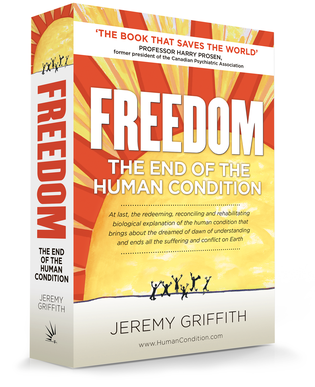
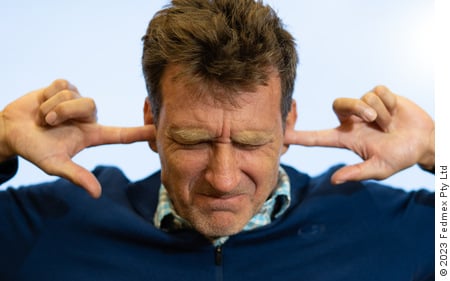
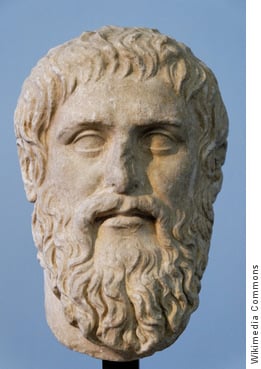
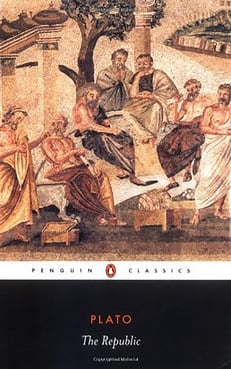

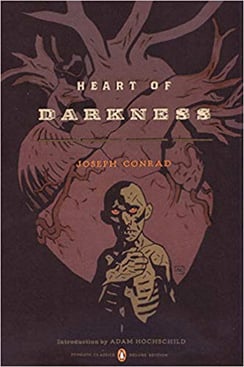
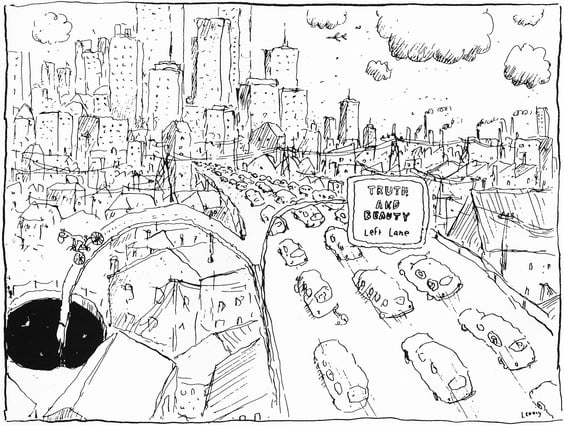
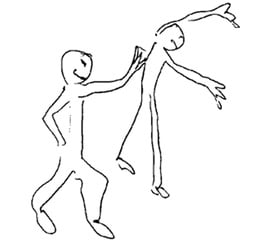
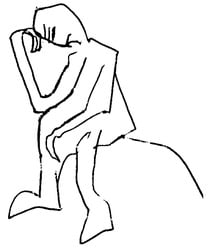
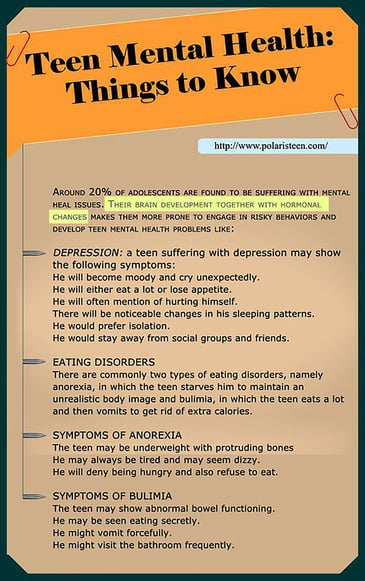
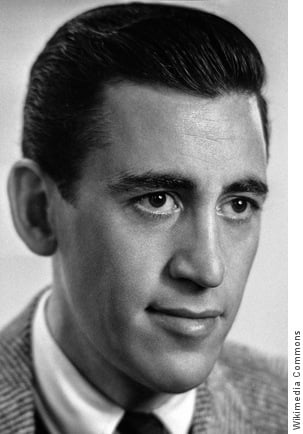
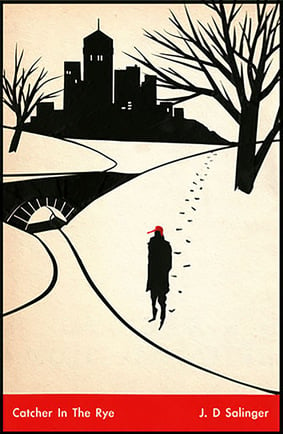
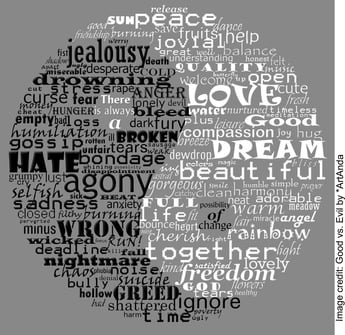


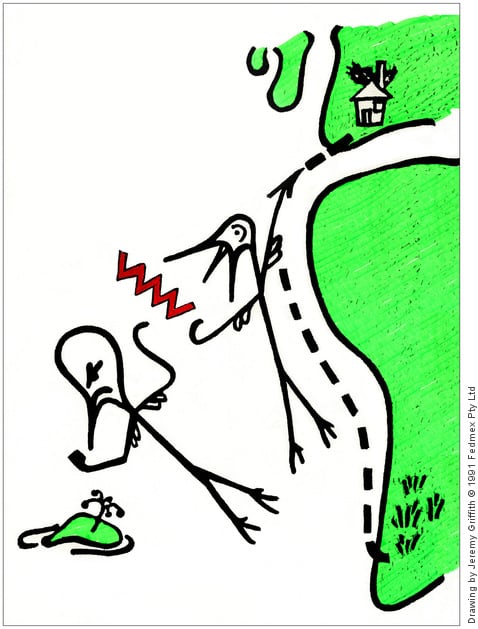
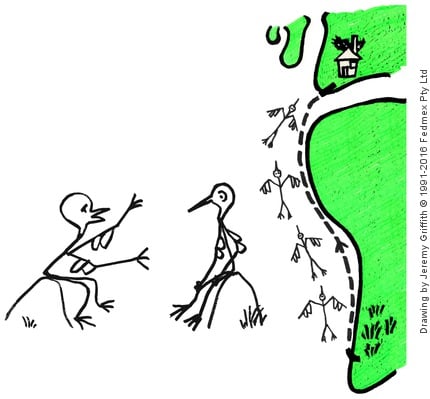
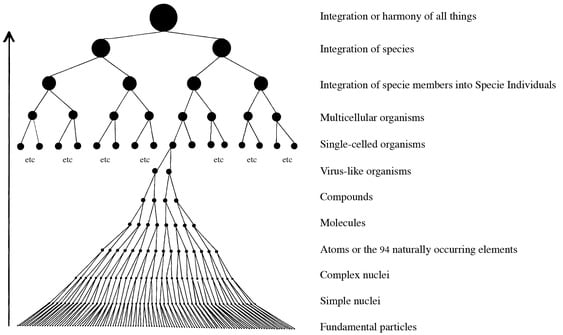
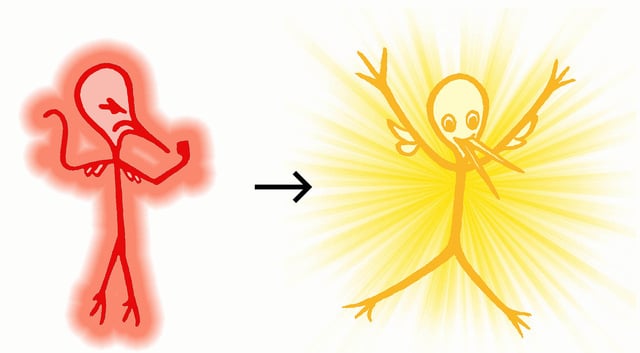

Please wait while the comments load...
Comments